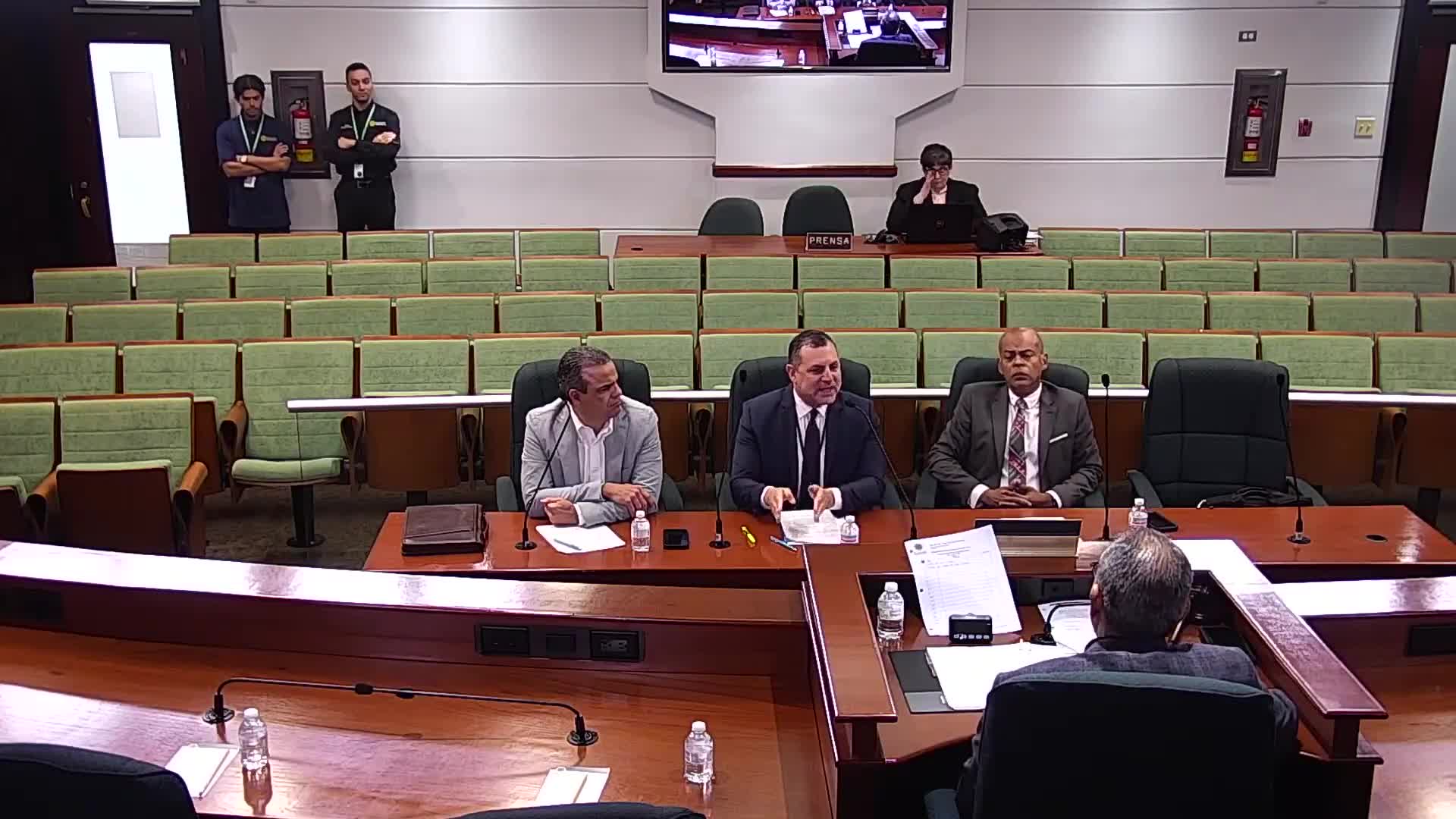Legislators discuss child development training to prevent abuse in family programs
May 31, 2025 | House of Representatives, House, Committees, Legislative, Puerto Rico
This article was created by AI summarizing key points discussed. AI makes mistakes, so for full details and context, please refer to the video of the full meeting. Please report any errors so we can fix them. Report an error »

In a recent meeting of the Camara de Representantes in Puerto Rico, discussions centered on the critical developmental needs of children and the importance of tailored parenting workshops. The dialogue highlighted the stark differences in the requirements of children aged 0 to 4 compared to those aged 12 to 18. Experts emphasized that parents must be equipped with specific skills and knowledge relevant to their child's developmental stage, particularly in areas such as discipline and protective capacities.
One of the key points raised was the urgent need for increased awareness and education surrounding child abuse, particularly the fact that abusers often come from within the family circle—individuals whom families would least suspect. The conversation underscored the necessity of preventive measures for children aged 12 to 18, as many in this age group lack the legal capacity to consent, making them particularly vulnerable.
Dr. Juan Carlos Malavé proposed a structured approach to understanding child development, suggesting that children be grouped into distinct stages: 0-5 years, 6-10 years, 11-16 years, and 16-18 years. This framework aims to address the unique biopsychosocial needs at each stage, ensuring that interventions are appropriate and effective.
Legal advisor Miguel Hernández Bione raised concerns about the potential requirement for mandatory certification for parenting programs, arguing that such a mandate could hinder the spirit of existing federal initiatives designed to support families. He urged the commission to consider the financial implications of these programs, particularly for low-income families who may struggle to afford necessary workshops.
As the meeting progressed, the representatives acknowledged the importance of reinforcing these initiatives to prevent future gaps in support for families. The discussions concluded with a commitment to further explore these recommendations, ensuring that the needs of children and their parents are met with the utmost care and consideration. The outcomes of this meeting could pave the way for significant changes in how parenting support is structured in Puerto Rico, ultimately aiming to foster healthier family dynamics and protect the most vulnerable members of society.
One of the key points raised was the urgent need for increased awareness and education surrounding child abuse, particularly the fact that abusers often come from within the family circle—individuals whom families would least suspect. The conversation underscored the necessity of preventive measures for children aged 12 to 18, as many in this age group lack the legal capacity to consent, making them particularly vulnerable.
Dr. Juan Carlos Malavé proposed a structured approach to understanding child development, suggesting that children be grouped into distinct stages: 0-5 years, 6-10 years, 11-16 years, and 16-18 years. This framework aims to address the unique biopsychosocial needs at each stage, ensuring that interventions are appropriate and effective.
Legal advisor Miguel Hernández Bione raised concerns about the potential requirement for mandatory certification for parenting programs, arguing that such a mandate could hinder the spirit of existing federal initiatives designed to support families. He urged the commission to consider the financial implications of these programs, particularly for low-income families who may struggle to afford necessary workshops.
As the meeting progressed, the representatives acknowledged the importance of reinforcing these initiatives to prevent future gaps in support for families. The discussions concluded with a commitment to further explore these recommendations, ensuring that the needs of children and their parents are met with the utmost care and consideration. The outcomes of this meeting could pave the way for significant changes in how parenting support is structured in Puerto Rico, ultimately aiming to foster healthier family dynamics and protect the most vulnerable members of society.
View full meeting
This article is based on a recent meeting—watch the full video and explore the complete transcript for deeper insights into the discussion.
View full meeting